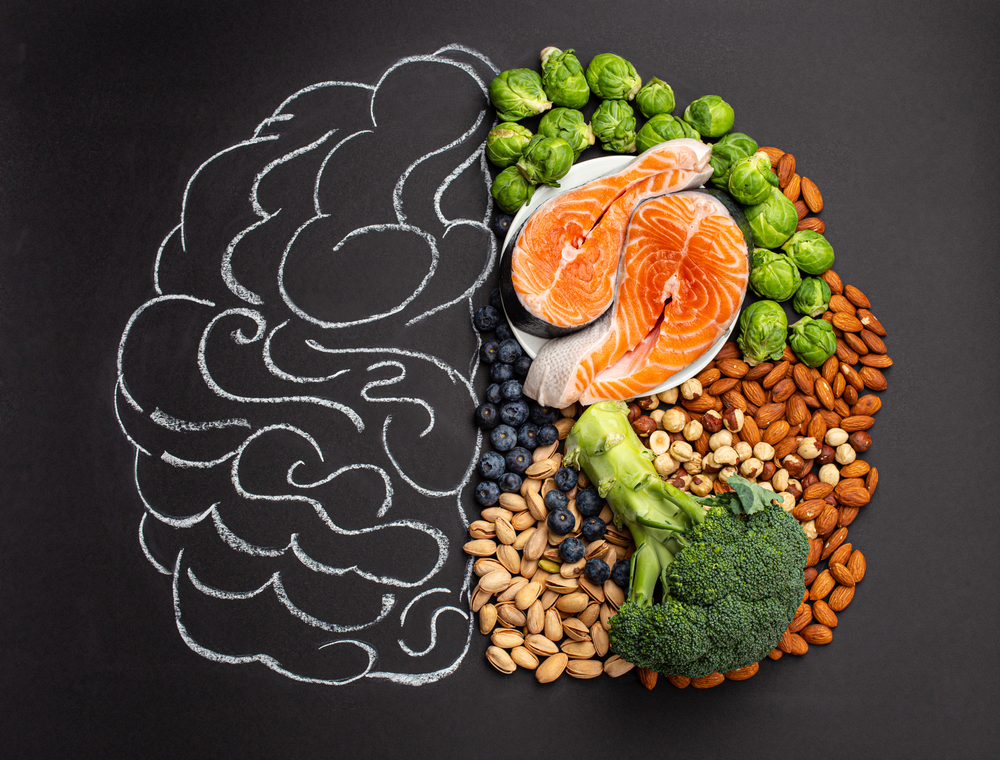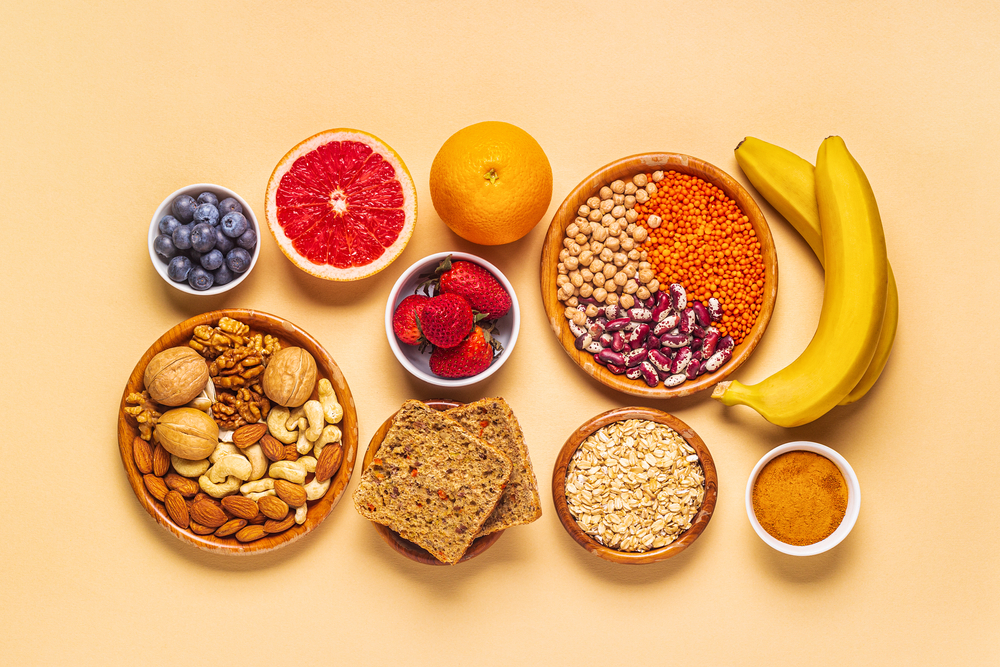Nutrition at Work: Hack Your Stress, Unleash Your Productivity

Table of Contents
Nutrition at work plays a pivotal role in addressing workplace stress. In this article, we delve into essential strategies for integrating optimal nutrition into your daily work routine, enabling you to effectively manage stress and enhance your productivity. Discover valuable insights to empower yourself and perform at your best in the demanding work environment.
Understanding the Link Between Nutrition and Stress

Feeling frazzled at your desk? You might want to peek inside your lunchbox for a clue. What we eat has a powerful effect on our stress levels, and, in turn, stress can lead us to make less-than-stellar choices about what we munch on. It’s a real two-way street: fuel your body right, and you’ll be better equipped to handle the pressures of the 9-to-5 grind. On the flip side, let stress rule your eating habits, and you might find yourself reaching for that comfort food more often than not. Let’s dig into how this dynamic duo can either be besties or frenemies when it comes to managing your workday worries.
The Impact of Nutrition on Stress Levels
When we’re super busy or feeling the pressure, we often reach for comfort food, like sugary snacks or greasy fast food. But what we eat can really affect how we handle stress. Good nutrition acts like a secret weapon that helps our bodies combat stress before it knocks us down. Eating balanced meals gives us the fuel we need to face challenges head-on.
On the flip side, chowing down on junk food when we’re stressed can make bad feelings stick around longer. Our bodies react to these foods the way they would to stress itself, releasing hormones that can leave us feeling rundown and anxious. So, it’s super important to pick foods that help us stay cool, calm, and collected, even when work has got us feeling like we’re in over our heads.
How Stress Affects Dietary Choices
When you’re slammed with deadlines and to-do lists, have you ever noticed how you reach for snacks unconsciously? It’s not just you; when stress hits, our food choices often take a hit too. Usually, we crave foods high in sugar, fat, and salt – think chips, cookies, and fast food. That quick burst of energy or feel-good vibe from a sweet treat is our body’s way of trying to feel better.
But here’s the twist. While these comfort foods seem to be our friends in the short term, they’re actually more like frenemies. Eating junk food when stressed out can lead to a cycle of mood swings and even more stress. It’s like putting a band-aid on a leaky pipe – it might hold for a bit, but sooner or later, you’re going to have a mess on your hands. So next time stress starts knocking, remember that giving in to those junk food cravings might just crank up the pressure in the long run.
Nutrition Strategies for Coping with Stress at Work

Let’s dive into how food can be your ally during those taxing workdays. Thinking about what you munch on can really shape how you tackle stress. We’ve all got a lot on our plates, but tweaking what’s actually on your plate can be a game-changer. We’re about to unpack some simple yet effective ways to eat smart and stay on top of your game, even when the pressure is mounting. From mindful munching to smart snacking, it’s time to fuel up right to power through your workload with ease.
Mindful Eating Techniques for Stress Reduction
When you’re caught up in the whirlwind of deadlines and meetings, it’s easy to scarf down lunch without even noticing it. But have you considered the power of mindful eating? Mindful eating is all about paying full attention to the experience of eating and savoring every bite. It helps you become aware of your body’s hunger and satisfaction signals, which can prevent overeating caused by stress.
To practice this, start by taking smaller bites and chewing slowly. This way, you allow your mind to catch up with your body’s “I’m full” signals. Try to eliminate distractions, too. That means no emails or spreadsheets during mealtime. Instead, focus on the flavors, textures, and aromas of your food. Even taking a few deep breaths before you begin can help set the stage for a calmer, more enjoyable meal that nourishes your body and soothes your mind.
Healthy Snack Options to Boost Energy
When you’re grinding away at your desk, you might get hit by the dreaded mid-afternoon slump. It’s tempting to grab a sugary treat, but what your body really needs is something to fuel it with long-lasting energy. Choosing the right snacks can not only boost your energy levels but also keep stress at bay by stabilizing your blood sugar.
A great go-to is a handful of nuts, like almonds or walnuts, which are packed with healthy fats and a bit of protein. Or, you could opt for some Greek yogurt with berries, which gives you a hit of protein, fiber, and antioxidants. These little combos are power-packed and will help you tackle your to-do list without the crash that comes from less nutritious choices.
Hydration and Stress Management
Staying well-hydrated is more powerful than it seems, especially when it comes to handling stress. Water is a key player in how our bodies function, directly affecting our brains and, in turn, our emotional state. It’s easy to forget to drink water when we’re buried under piles of work, but dehydration can trigger stress and even make it harder to tackle. When we’re properly hydrated, our brains are better equipped to manage the stressors of a busy workday.
To keep that water bottle handy, perhaps set reminders on your phone or use apps designed to track water intake. It’s a small step, but it can have a big impact on your day. And don’t forget, foods like fruits and veggies also contribute to your daily water intake, making them a double win for staying refreshed and reducing stress. Remember, when your body is happily hydrated, managing the pressures of work becomes a whole lot easier.
Stress-Reducing Nutrients and Supplements

Ever felt like a tightly wound coil, ready to snap at the merest nudge? That’s stress doing its not-so-silent dance in your life. But here’s some good news: what you eat can help you keep that dance slow and graceful. Jam-packed with powers to ease your mind and soothe your nerves, certain nutrients and supplements can be your undercover agents in the battle against the stress that hits during your 9-to-5 grind. Let’s unlock the secret menu of stress-busting helpers.
Essential Nutrients for Stress Management
When juggling deadlines and meetings, it’s easy to overlook the role of nutrition in handling workplace pressures. However, giving your body the right fuel can make a world of difference. Vitamins such as B vitamins, particularly B6, B12, and folate, play a crucial part in mood regulation and can help in reducing feelings of stress. These B vitamins are integral in producing brain chemicals that affect mood and other brain functions.
Another key player is Vitamin C, well-known for immune support, which also helps to lower cortisol levels, a stress hormone. Magnesium is another stress-reliever, often called the relaxation mineral for its ability to ease anxiety and improve sleep. For a healthy mind and body that stands strong against stress, integrating these nutrients into your daily meals can be hugely beneficial. Including foods rich in omega-3 fatty acids, such as salmon or walnuts, can also assist in reducing the symptoms of stress.
Beneficial Supplements for Stress Relief
Stress can weigh heavily on us, especially during a hectic workday, but there’s good news! Certain supplements might act as stress-busters, helping to calm our busy minds and keep us focused. Magnesium is one such superhero; it’s known for relaxing muscles and nerves, which can help when tension tries to take over. Think of it as a chill pill for your overworked system.
Another ally is Omega-3 fatty acids, typically found in fish oil. These supplements aren’t just good for your heart; they’re like a balm for the brain, potentially easing anxiety symptoms. Vitamin B Complex is also essential, as it helps the body cope with stress by supporting proper nervous system function. Just remember, before starting any new supplement, it’s wise to have a chat with your healthcare provider to make sure it’s the right move for you.
Creating a Supportive Work Environment for Nutritional Well-Being

Let’s face it, work can be a stressful place, and when the pressure is on, it’s easy for healthy eating habits to fall by the wayside. But imagine a workplace where nutritious choices are not just available, but encouraged. This isn’t a far-fetched dream! With a supportive work environment, employers and employees can join forces to create spaces where eating well is part of the culture, helping everyone tackle stress with a well-fueled body and mind.
Promoting Healthy Food Choices in the Workplace
Creating a space where healthy food is the norm can make a huge difference in how we cope with day-to-day stresses on the job. Offering fruits, vegetables, and whole grains as snack options instead of the usual vending machine fare can lead to better food choices and improved mood among employees. It’s about making the healthy option an easy choice.
For instance, having a ’healthy snack station’ filled with nuts, yogurt, and fresh fruit can encourage workers to grab something nutritious when hunger pangs strike. It’s also beneficial to provide information on why these foods help manage stress, perhaps through informative posters or emails. Knowledge is power, and when employees understand the positive impact their diet has on their stress levels, they’re more likely to reach for that apple instead of a candy bar.
Encouraging Stress-Relieving Breaks and Activities
Creating a work culture that values breaks and activities aimed at reducing stress is important. This often starts with management setting an example by taking breaks themselves and encouraging others to do the same. Short, frequent breaks can be more effective than fewer, longer breaks, keeping the mind fresh and reducing feelings of being overwhelmed.
Offering stress-relieving activities like a quiet space for meditation, organizing group walks, or providing access to games can also make a big difference. These activities shouldn’t feel like extra work but rather a fun way of taking a step back from daily tasks to recharge. Some companies even provide yoga classes or relaxation workshops. Remember, when employees are less stressed, they tend to be more engaged, happier, and more productive.
Maintaining Balance and Consistency in Nutrition at Work

Finding the right balance in your eating habits during busy workdays is super important. It’s like being a tightrope walker; you need to carefully move forward without tipping over. Consistent, balanced nutrition keeps your energy up and stress levels down, setting the stage for you to crush your work goals. So, take control of your meals and snacks as if you’re the maestro of an orchestra, orchestrating a harmonious day filled with satisfying, nutrient-rich foods.
Effective Meal Planning for Busy Professionals
Work can get really hectic, but that’s no excuse to let your eating habits slide. Meal planning is like magic for managing your nutrition, even when deadlines and meetings are piling up. Start by setting aside some time on the weekend to map out your meals for the week. Think about what you’ll need for breakfast, lunch, and those crucial snacks to keep your energy levels steady.
Batch cooking is your best friend here. Cook once, eat multiple times by preparing big portions of versatile foods, like grilled chicken, roasted veggies, or quinoa. Pack them up in containers, and voilà, you’ve got a fridge full of healthy meals ready to grab and go. By doing this, you’ll dodge the temptation of unhealthy fast food and make sure you’re fuelling your body to face the day’s stress with strength. Plus, you’ll save money and time, which are always in short supply!
Incorporating Nutrient-Rich Foods into Daily Routines
Creating a routine that includes nutrient-rich foods can be a game-changer for your workday. It’s all about making smart, easy-to-implement changes that add up over time. Start your day with a breakfast that’s packed with fiber and protein – this could be as simple as oatmeal topped with nuts and fruit, or a veggie omelette. These types of foods release energy slowly, keeping you alert and focused throughout the morning.
For lunch and dinner, aim to fill half your plate with vegetables. They’re not only low in calories but high in vitamins, minerals, and fiber. If fresh veggies are hard to come by during your busy day, consider keeping a stash of frozen ones; they’re just as nutritious and can be prepared quickly. Add lean protein like chicken or fish, and you have a meal that will fuel your body and help fend off the 3 p.m. slump. By consistently choosing these nutrient-dense foods, you’re setting yourself up for sustained energy and less stress.
Nutrition as a Catalyst for Stress Management at Work
Feeling frazzled by deadlines and endless tasks? Good nutrition can be your secret weapon in the battle against workplace stress. It’s not just about eating your greens—when you fuel your body right, it’s like giving your internal systems the armor they need to face stress head-on. This means that smart eating choices can help keep your mind clear and your mood stable, even when the pressure is on.
By incorporating nutrient-rich foods into your daily routine, you’re setting up a strong foundation for stress resilience. Think of it as building a toolset with the best equipment: vitamins, minerals, and antioxidants all play their roles in preparing your body to tackle stress effectively. So, when you reach for that midday snack, make it something that gives you more than just a temporary energy spike. Choose snacks that are high in protein, fiber, and healthy fats—foods that will help you stay alert and calm throughout the workday.
Conclusion
By proactively prioritizing nutrition and adopting the right strategies, you can effectively manage stress in the workplace, leading to improved well-being and productivity. Embracing a healthy approach to nutrition at work is the ultimate key to unlocking your full potential in a fast-paced professional environment.
FAQs
1. What is a nutritional strategy for coping with stress?
- A nutritional strategy for coping with stress involves maintaining a well-balanced diet that includes foods rich in vitamins, minerals, and other nutrients that support overall mental and physical well-being. Consuming stress-reducing foods such as fruits, vegetables, and whole grains can contribute to a healthier response to stress.
2. What are the 5 strategies in coping and managing stress?
- The five strategies for coping and managing stress include:
- Establishing a regular exercise routine.
- Practicing mindfulness and meditation.
- Setting realistic goals and priorities.
- Maintaining a healthy work-life balance.
- Seeking social support and effective communication.
3. How do you cope with stress at work?
- Coping with stress at work involves adopting various strategies, such as:
- Prioritizing tasks and setting achievable goals.
- Taking regular breaks to refresh the mind.
- Engaging in stress-relieving activities like deep breathing or stretching.
- Seeking support from colleagues or supervisors.
- Incorporating proper nutrition into your workday.
4. What strategies can help to reduce stress at the workplace?
- Effective strategies to reduce stress at the workplace include:
- Creating a positive and supportive work environment.
- Implementing time management techniques.
- Providing opportunities for employees to take breaks and recharge.
- Encouraging open communication and feedback.
- Promoting a healthy work-life balance.
5. What are 3 effective strategies to handle stress and reduce its effects?
- Three effective strategies to handle stress and reduce its effects are:
- Developing a resilience mindset through positive thinking.
- Practicing regular physical activity to release tension.
- Incorporating relaxation techniques, such as deep breathing or progressive muscle relaxation.
6. What are 12 ways to deal with stress?
- Dealing with stress involves a multifaceted approach. Here are 12 ways:
- Exercise regularly.
- Prioritize tasks and set realistic goals.
- Practice mindfulness and meditation.
- Foster positive relationships.
- Maintain a healthy diet.
- Get adequate sleep.
- Take breaks to relax.
- Learn to say no when necessary.
- Seek professional support if needed.
- Engage in hobbies and activities you enjoy.
- Manage time effectively.
- Stay organized to reduce feelings of overwhelm.
7. What are 4 successful techniques for managing stress?
- Four successful techniques for managing stress include:
- Cognitive-behavioral therapy (CBT).
- Time management and organizational skills.
- Relaxation techniques, such as yoga or meditation.
- Setting boundaries and learning to prioritize self-care.
8. How can I reduce stress naturally?
- To reduce stress naturally, consider:
- Engaging in regular physical activity.
- Incorporating stress-reducing foods into your diet.
- Practicing mindfulness and relaxation techniques.
- Ensuring quality sleep.
- Building a strong support system through social connections.
- Limiting caffeine and alcohol intake.
- Taking breaks to disconnect from work-related stressors.
Useful resources
- Harvard Health Publishing – Stress and Health: This comprehensive article dives deep into the link between stress and diet, offering practical advice on how to use food as a stress management tool. It covers mindful eating, nutrient-rich foods to prioritize, and how to avoid stress-induced cravings. https://www.hsph.harvard.edu/nutritionsource/stress-and-health/
- Campus Health – Nutrition and Stress: This website provides a clear and concise overview of how stress affects your body and how to combat it through food choices. It highlights the importance of balanced meals, high-fiber foods, and specific nutrients like vitamin C and B vitamins. https://campushealth.unc.edu/nutrition-and-stress/
- American Institute of Stress – Stress Management, Healthy Eating and Your Performance at Work: This article focuses specifically on workplace stress and how nutrition can support your productivity and well-being. It offers actionable tips for planning healthy meals and snacks, staying hydrated, and avoiding unhealthy coping mechanisms. https://www.aatcomment.org.uk/career/stress-management-healthy-eating-and-your-performance-at-work/








Hi my loved one I wish to say that this post is amazing nice written and include approximately all vital infos Id like to peer more posts like this
Thank you for your kind words! We’re thrilled you enjoyed the post, and we’ll strive to bring you more captivating content in the future.
Your blog is a breath of fresh air in the world of [topic]. Keep shining! | Mushrooms Recipes
The author’s deep interest and knowledge were truly impressive. The inclusion of examples and case studies made the topic even more enlightening. | Gümüşhane Konteyner Ev
Katip Kasım / Fatih Karot | Rüzgar Karot’un sunduğu hizmetten çok memnun kaldım, herkese gönül rahatlığıyla tavsiye ederim.
Your point of view caught my eye and was very interesting. Thanks. I have a question for you.
thank you for your comment, I’m glad to hear you
Chelo sabzamini Recipes | Your passion for your craft is evident in every word you write. Thank you for sharing your expertise with us.
thank you so much for your comment
This post is so well-written. It’s clear that you put a lot of thought into it.
I really like reading through a post that can make men and women think. Also, thank you for allowing me to comment!
I’m often to blogging and i really appreciate your content. The article has actually peaks my interest. I’m going to bookmark your web site and maintain checking for brand spanking new information.
Good post! We will be linking to this particularly great post on our site. Keep up the great writing